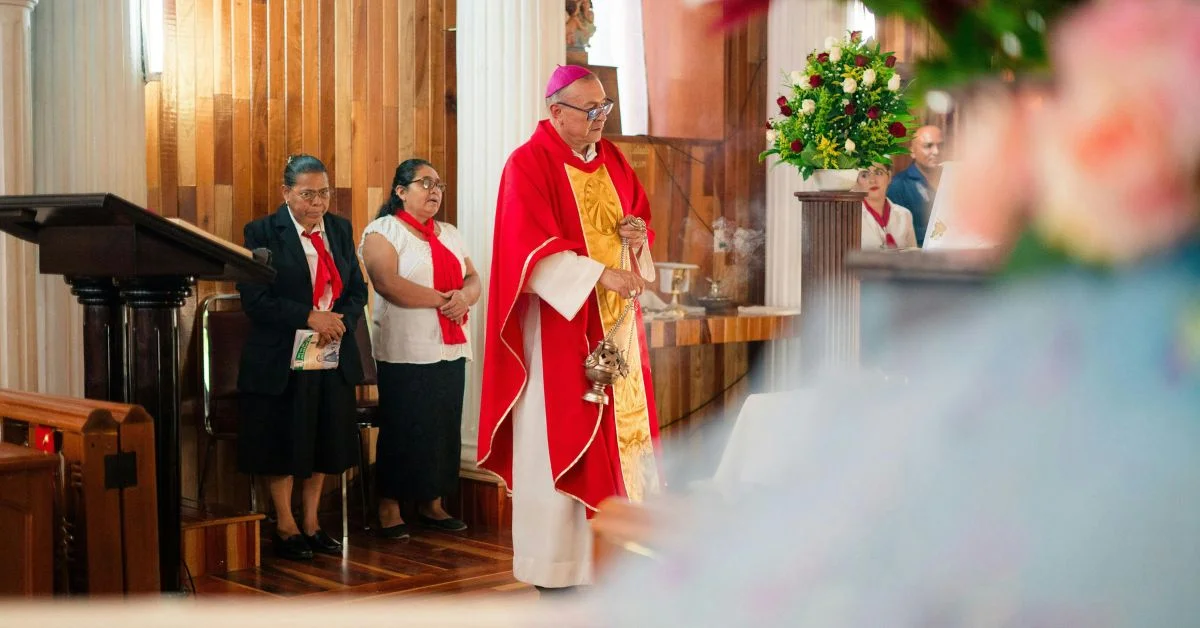The journey to ordained ministry in the church is not one taken lightly. Churches around the world, particularly within traditions such as the Anglican Communion, have carefully designed systems to ensure that those seeking ordination are genuinely called, properly equipped, and spiritually ready for the immense responsibilities of leadership. One of the most significant steps in this discernment process is the Bishops Advisory Panel (BAP).
The Bishops Advisory Panel is a structured and prayerful process where candidates for ordained ministry are assessed not just on intellectual ability, but also on spiritual maturity, emotional resilience, interpersonal skills, and vocational clarity. It represents a meeting point between personal calling and institutional discernment, ensuring that the future leaders of the church are people of integrity, depth, and faithfulness.
This article will provide a detailed, exploration of the Bishops Advisory Panel: its purpose, history, structure, candidate preparation, stages of assessment, challenges, and long-term significance. It will also include tables comparing aspects of the process, as well as insights into how candidates can best prepare themselves.
Understanding the Bishops Advisory Panel
At its core, the Bishops Advisory Panel is a discernment body convened under the authority of bishops. It typically gathers a group of candidates over several days, where they undergo a series of exercises, interviews, and group tasks designed to reveal their strengths, weaknesses, and suitability for ordained ministry.
Key characteristics include:
- Advisory Role: The panel advises the bishop but does not make the final decision. The bishop discerns based on the panel’s recommendations.
- Holistic Assessment: Candidates are considered not just for what they know, but for who they are and how they embody Christian leadership.
- Community Context: The panel reflects the communal nature of discernment, showing that ministry is never an individual pursuit but always rooted in community.
Historical Background
The practice of assessing candidates for ministry has existed for centuries. Early churches relied heavily on community reputation, personal character, and apprenticeship-like mentorship under senior leaders. Over time, as churches grew in size and structure, formal processes were developed.
The modern Bishops Advisory Panel system emerged in the 20th century, particularly within the Church of England, as the need for a standardized and fair discernment process became clear. The model has since evolved to balance pastoral sensitivity with rigorous assessment.
Purpose of the Bishops Advisory Panel
The BAP serves several purposes, all centered on discernment of vocation:
- Confirmation of Calling – Testing whether a candidate’s sense of call is genuine and sustainable.
- Assessment of Suitability – Ensuring candidates have the character, gifts, and resilience for ministry.
- Identification of Strengths and Weaknesses – Highlighting areas where candidates may need growth or training.
- Providing Feedback – Offering clear guidance to bishops and candidates on the next steps.
Structure of the Panel
The Bishops Advisory Panel typically involves:
| Component | Description | Purpose |
|---|---|---|
| Advisors | Clergy and lay members trained in assessment. | Provide balanced insights into candidates. |
| Candidates | Individuals nominated by their dioceses. | Participate in assessment exercises. |
| Bishop’s Role | Receives panel’s report and discerns. | Makes final decision regarding ordination training. |
| Duration | Usually 2–3 days. | Allows multiple assessments across varied contexts. |
This structure reflects the importance of both diversity and collaboration in discernment.
The Candidate’s Journey
Candidates arriving at the Bishops Advisory Panel have usually traveled a long journey already:
- Initial Exploration – Conversations with parish priests or mentors about a sense of calling.
- Diocesan Discernment – A series of meetings and interviews at the diocesan level.
- Recommendation – If deemed ready, candidates are nominated to attend the Bishops Advisory Panel.
By the time they arrive at BAP, candidates are expected to have a well-articulated sense of calling and a basic understanding of what ordained ministry entails.
Stages of the Bishops Advisory Panel
The assessment process often includes a blend of individual and group activities.
1. Interviews
- Conducted by panel advisors.
- Explore personal faith, vocational story, theological understanding, and life experience.
2. Group Exercises
- Problem-solving or discussion tasks with other candidates.
- Assess teamwork, communication, and listening skills.
3. Written Exercises
- Short essays or reflective pieces.
- Reveal clarity of thought, articulation, and theological grounding.
4. Worship Participation
- Candidates may lead prayers or read Scripture.
- Demonstrates liturgical awareness and pastoral sensitivity.
5. Informal Observations
- Advisors often watch how candidates behave in unstructured settings (meals, breaks).
- Helps gauge authenticity and relational dynamics.
Key Criteria for Assessment
The Bishops Advisory Panel looks for qualities across several areas:
| Area | Examples of Qualities Sought |
|---|---|
| Spirituality & Faith | Depth of prayer life, trust in God, biblical understanding |
| Character & Integrity | Honesty, humility, resilience, emotional maturity |
| Leadership & Collaboration | Ability to inspire, listen, and work as part of a team |
| Communication | Preaching ability, clarity of expression, adaptability |
| Theological Understanding | Grasp of Christian doctrine, openness to learning |
| Vocation Clarity | Articulated sense of call to ordained ministry |
This holistic assessment ensures candidates are well-rounded.
Candidate Preparation
Preparation is not just about studying theology, but about self-awareness and authenticity.
Practical Preparation Tips
- Reflect Deeply on Your Calling – Be able to explain why you feel called to ministry.
- Engage in Prayer and Scripture – Show a consistent, personal spiritual life.
- Understand the Church’s Role – Know the responsibilities of ordained leaders.
- Practice Communication – Sharpen public speaking, listening, and writing skills.
- Seek Honest Feedback – Allow mentors and peers to highlight blind spots.
Outcomes of the Bishops Advisory Panel
After the process, advisors submit a comprehensive report to the bishop. Outcomes typically fall into three categories:
| Outcome | Meaning | Next Steps |
|---|---|---|
| Recommended | Candidate shows clear readiness. | Begin formal ordination training. |
| Recommended with Conditions | Candidate has potential but must address certain issues. | Further training, mentoring, or spiritual direction. |
| Not Recommended | Candidate not currently suited. | May reapply later after growth and discernment. |
This ensures candidates are not rushed into ministry unprepared.
Emotional and Spiritual Impact
Attending a Bishops Advisory Panel can be an intense experience. Candidates often feel:
- Affirmed – When their calling is recognized.
- Challenged – When weaknesses are revealed.
- Uncertain – When outcomes are not straightforward.
Yet, the process itself is spiritually formative, helping candidates grow in humility and resilience, regardless of the result.
Challenges of the System
Like any structured process, the Bishops Advisory Panel faces criticisms and challenges.
| Challenge | Concern | Possible Response |
|---|---|---|
| Subjectivity | Human bias may influence decisions. | Diverse panel composition and training. |
| Pressure on Candidates | Stress may overshadow true abilities. | Create supportive environments. |
| Cultural Barriers | Some backgrounds may feel less understood. | Greater cultural sensitivity training. |
| Accessibility | Travel and time commitments can be hard. | Hybrid or regional panels as alternatives. |
By recognizing and addressing these challenges, the system can remain fair and effective.
The Long-Term Significance of the Bishops Advisory Panel
The BAP is not just a gatekeeping exercise; it has a lasting impact on the life of the church:
- Ensures Quality Leadership – Only candidates with genuine calling and capability progress.
- Strengthens the Church Community – Healthy leaders build stronger congregations.
- Promotes Accountability – Candidates and bishops share responsibility in discernment.
- Shapes Future Mission – Leaders chosen today guide the church’s mission tomorrow.
Conclusion
The Bishops Advisory Panel is one of the most critical stages in the journey toward ordained ministry. It combines prayerful discernment with structured assessment to ensure that those entrusted with pastoral leadership are truly called, spiritually mature, and practically capable.
While challenging and sometimes daunting, the BAP reflects the seriousness with which the church approaches ministry. For candidates, it is both a test and an opportunity — a chance to articulate their faith, demonstrate their gifts, and embrace their calling more fully.
Ultimately, the Bishops Advisory Panel is not about passing or failing, but about seeking God’s will together, ensuring that the future leaders of the church are chosen with wisdom, humility, and care.
Frequently Asked Questions (FAQs)
1. What is the Bishops Advisory Panel?
It is a structured discernment process where candidates for ordained ministry are assessed for suitability and readiness.
2. Who attends the Bishops Advisory Panel?
Candidates nominated by their diocese, alongside trained advisors, gather for a multi-day assessment process.
3. What happens during the BAP?
Candidates undergo interviews, group exercises, written tasks, and informal observations, all designed to evaluate their suitability.
4. What are the possible outcomes?
Candidates may be recommended, recommended with conditions, or not recommended, depending on the panel’s findings.
5. How should candidates prepare?
By reflecting on their calling, deepening their spiritual life, practicing communication, and seeking honest feedback from mentors.
For more information, click here.









